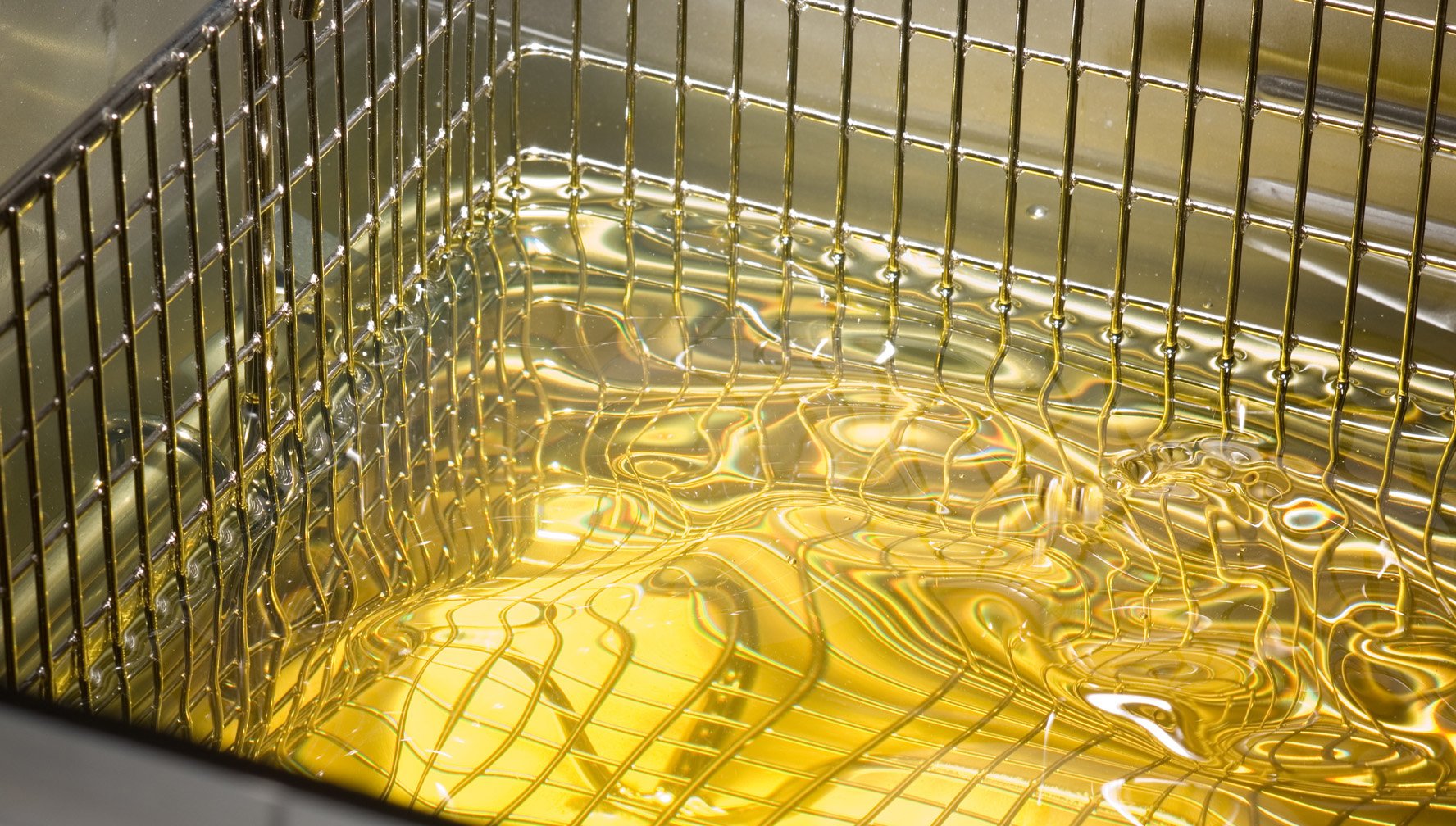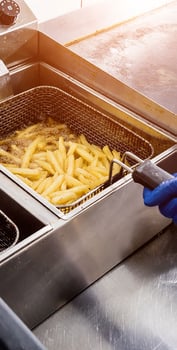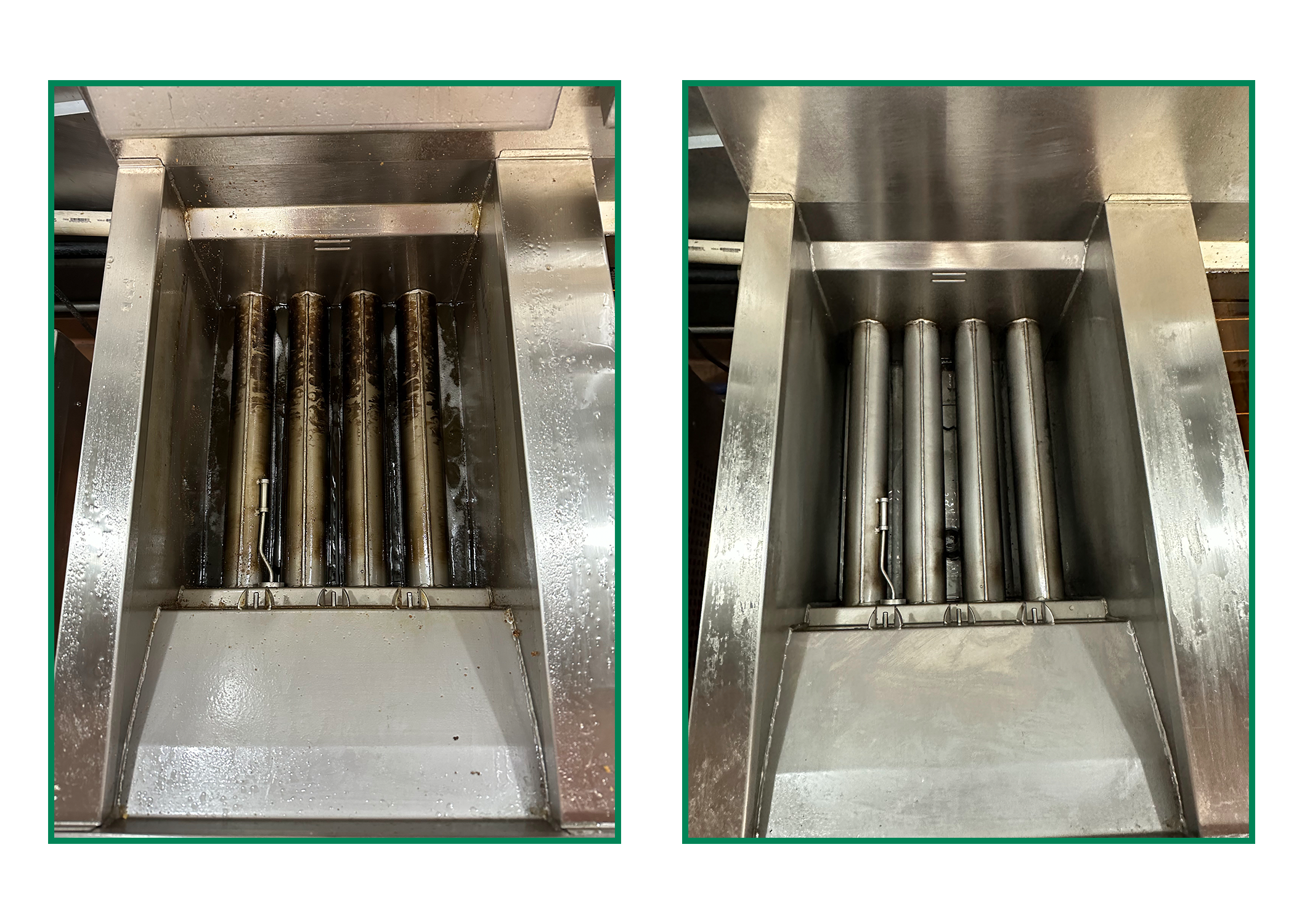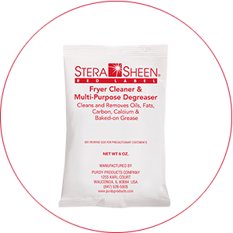How To Conserve Commercial Fryer Oil

Fryer oil is likely the most expensive commodity in your kitchen, and with the continued effects of inflation it’s more essential than ever to stretch the life of your oil.
So, what can you do to conserve oil and save money, while keeping your frying equipment clean and customers safe?
First off, Oil is the Lifeblood of Your Fryer
Let’s be clear: Oil degradation is inevitable. Depending on what you’re cooking, it could degrade even faster. Taking care of your fryer oil is directly related to the quality of your food. Dirty oil will result in food that tastes off, looks off, and ends up greasy. Cleaner oil that is free of sediment, carbon and old oil means your fried foods will stay flavorful and perfectly crisp.
When Should You Change Your Oil?
Determining when to discard your oil is an essential part of conserving oil and cooking quality products. Pay attention to how your food looks and tastes, the color of the oil itself, and how the oil behaves (watch for smoking or foaming). If you’re unsure, oil test strips and testing kits are available and a great way to be certain of when you need a change. Regular filtering can also extend the life of your oil, and should be done at least once a day, or as often as necessary.
Why You Should Clean Your Fryer 
Fryers with carbon buildup must work harder to properly heat your oil, which can result in hot spots and unevenly cooked food. That same buildup can also cover the heat sensors, which will affect your temperature reading. Not only
will this impact your fryer efficiency and food quality, but it could also create a food safety issue.
A consistent cleaning schedule is the best way to remove fats, calcium, oils, carbons, rust, and burned-on grease that have accumulated on your fryer. Regular cleaning can also result in direct savings for your business through oil conservation. Putting clean oil in a dirty fryer causes the oil to degrade quicker. Using smart procedures and quality cleaning products (such as Stera-Sheen Red Label) can also lead to indirect savings in the form of streamlined cleaning procedures and reduced labor.
How To Clean Your Fryer
The method for cleaning your fryer depends on your level of buildup, time, and resources available.
(Note: Always refer to product specific procedures when performing any type of cleaning. To ensure a safe and efficient process, make sure you use the correct product to water ratio, determined by your vat size. You can find procedures for Stera-Sheen Red Label here.
Boil Out
If you have a high level of oil and grease, or a fryer that hasn’t been properly maintained, you’ll want to perform a boil out. You might think the stubborn stains and carbon are there to stay, but odds are a boil out using a solution like Stera-Sheen Red Label can remove them completely. It’s also a good idea to perform a boil out every time you change out your oil.

See the difference a boil out can make using Stera-Sheen Red Label!
Visible stains, carbon and debris are washed away.
Soak
A soak is a safer process you can perform that doesn't require a boil. Your operations team can determine temperature for the soak, and the length of time. It's also a good option if you’re short on labor, as it can be performed overnight and doesn’t require an employee to monitor the fryer. 
Stera-Sheen Red Label allows for a hot or cold soak as well as the boil out option, and it can also be used to clean your fry baskets, frying utensils and concrete/tile floors. The entire process is accomplished
with minimal scrubbing and no neutralizing rinse required.
(Note: Red Label should not be used on air fryers)
Stay Consistent
Good fryer management will improve food quality, ensure an excellent customer experience, and minimize your total food costs. We can’t control inflation or rising oil prices, but you can help save money by extending the life of your oil with the above methods. Using a product like Red Label at every vat clean-out not only keeps your fryer clean, but extends the life of your oil and improves the taste of your food products.


